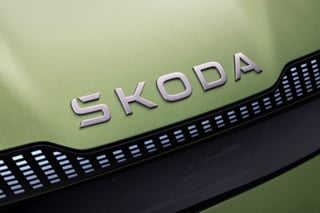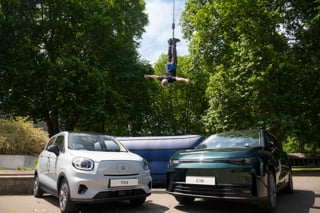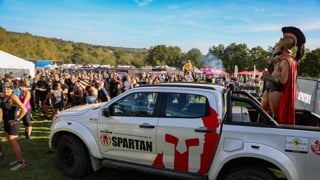Knowledge is power, or so the saying goes anyway. If that holds true, then today’s motor industry should be more powerful than it’s ever been.
Never before has there been so much consumer data readily available to dealerships about their customers’ buying habits and behaviours.
And yet, like Barry Schwartz said in The Paradox of Choice, sometimes ‘more is less’.
Information overload is an issue for car dealers like everyone else nowadays, so the last thing they need is yet more intangible data that has little real-world application.
These thoughts ran through my mind recently as I reviewed the results of the 2016 Buyer’s Census from YouGov, which I commissioned to explore how car buying habits are changing.
Knowing the results is one thing, but crunching the numbers and announcing the results is not enough. The industry needs actionables; ways for it to put big data to practical use to benefit the bottom line.
Well that’s exactly what I’ll lay down here - five quick, data-driven takeaways from our recent research that dealers can bring to their own business.
If you’re not being the expert online, someone else is
Three-quarters of the people in this YouGov survey (74%) said they trusted advice from experts or people they knew when buying a car.
A third of them chose ‘car review websites or forums’, another third said ‘word of mouth’, while 14% chose ‘car dealers or experts’.
Combine that with the fact that three-quarters of the people we questioned used the internet during the car buying process, and it’s clear that dealers need to be online, being active and speaking to their customers on social media, forums and through your own website.
Help them find the right car, faster
There are millions of used cars for sale in the UK - finding the right one should be easy, but it’s not.
For 18% of car buyers, almost 1/5, it took between more than a month, for some of them it took longer than six months. Consider how you can make the process faster for them; using new car search platforms which draw on big data and machine learning to deliver more personalised results.
Look again at your online marketing
Just 4% of the people we asked said they trusted classified-ad websites, but remember that three quarters trust friends or car experts.
Consider expanding how you’re marketing your cars online, using new ways to get customers to your own website.
Don’t neglect forecourt customers
A third of people said they didn’t use classified-ad sites the last time they bought a car.
If you apply that figure to the whole country that’s a lot of customers.
Over-55s especially prefer to visit a car dealer in person – 70% in fact.
Think about ways you can bring these customers the benefits of visiting your website online during the research phase.
Move with the times
‘Generation Z’ and ‘millennials’ want to buy their cars in a different way to older generations.
They demand near-instant access to the right car, in the right place and for the right price.
They also view car dealers differently too. Half of 18 to 35-year-olds speak to people they know for advice, while that age group was half as likely to trust car dealers or experts above anyone else than over-55s.
Instead, 39% of 18 to 24-year-olds said they valued ‘word of mouth’ the most, almost double the number of over-55s.
So embrace the world of peer-recommendations, get active online and start changing perceptions.
Author: Alastair Campbell, co-founder of Carsnip



















Login to comment
Comments
No comments have been made yet.